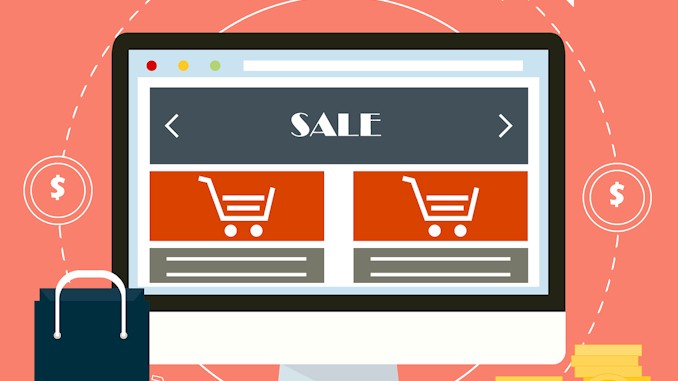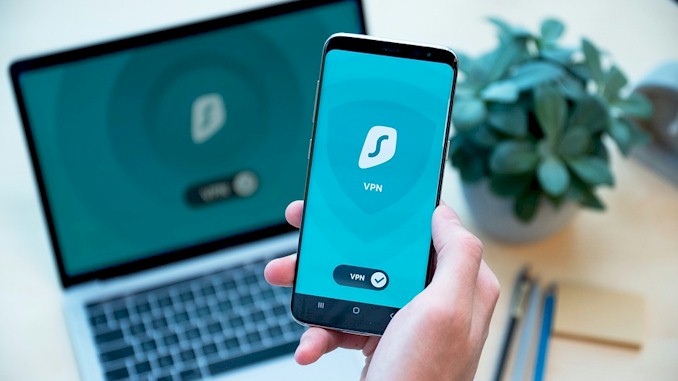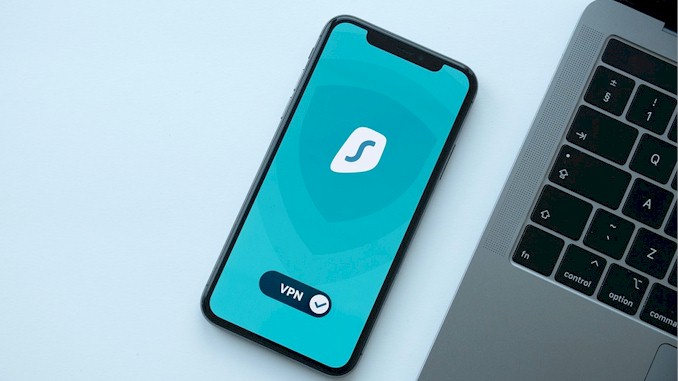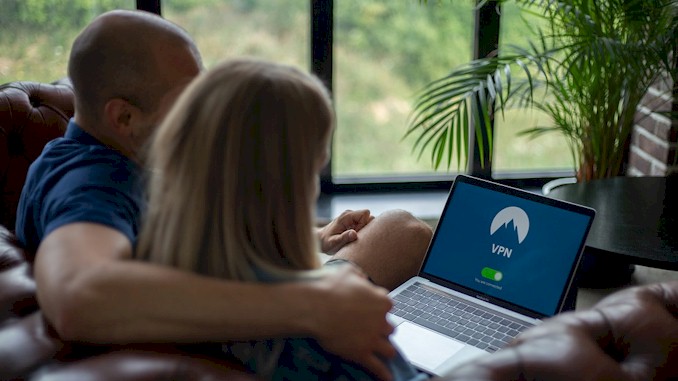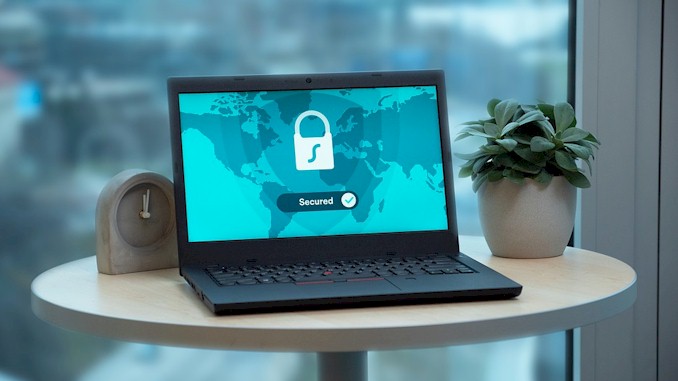Anonymous Purchases: Can You Buy Online with a VPN?
If you use a VPN for your online privacy and security, you must be like me, who wonders if I can buy things with a VPN. I was also curious about the benefits and risks of using a VPN for online shopping. Don’t worry; I have an answer for you now. As a user of a VPN for more than 10 years, I have plenty of experience with how to use a VPN for online shopping. I will share with you my tips and tricks on how to buy things online safely and securely.
The answer to the question of whether you can buy things online with a VPN is yes, you can. A VPN allows you to change your virtual location and appear as if you are browsing from another country. This can help you access online stores and products that are otherwise unavailable or restricted in your region. It can also help you compare prices and find the best deals across different markets. However, using a VPN for online shopping also comes with some challenges and risks that you need to be aware of.
Now that you know that you can buy things online with a VPN, you might be wondering how to do it properly. There are many factors that you need to consider before using a VPN for online shopping, such as the VPN provider, the payment method, the delivery address, and the legal implications. In this blog post, I will explain each of these factors in detail and give you some practical advice on how to use a VPN for online shopping without any hassle. I will also show you some examples of how I have used a VPN to buy things online and save money. So, if you want to learn more about how to buy things online with a VPN, keep reading. You will be surprised by what you can discover.
Why use a VPN for online shopping?
A VPN, or virtual private network, is a service that encrypts your internet traffic and hides your IP address from prying eyes. This can help you protect your privacy, security, and freedom online. But can it also help you save money, access geo-restricted products, and avoid online scams? In this section, I will explain the main benefits and risks of using a VPN for online shopping.
1. Save Money by Comparing Prices Across Different Markets
One of the most appealing reasons to use a VPN for online shopping is to find the best deals and discounts across different markets. Some websites charge different prices based on your location, device, browsing history, and other factors. This is called price discrimination, and it can affect various products and services, such as flights, hotels, car rentals, software, games, and more.
By using a VPN, you can change your virtual location and appear as if you are browsing from another country. This can help you access online stores and products that are otherwise unavailable or restricted in your region.
It can also help you compare prices and find the best deals across different markets. For example, you might find that a product is cheaper in India than in the U.S., or that a subscription service offers more content in the U.K. than in Canada.
However, there are some things to keep in mind when using a VPN for price comparison.
- First, you need to make sure that the VPN provider you choose has servers in the countries you want to shop from.
- Second, you need to clear your browser cookies and cache before switching locations, as some websites might remember your previous location and show you the same prices.
- Third, you need to check the currency conversion rates and fees before making a purchase, as they might affect the final price.
2. Access Geo-Restricted Products and Services
Another reason to use a VPN for online shopping is to access geo-restricted products and services. Some websites block or limit access to certain content based on your location. This can be due to licensing agreements, legal regulations, censorship, or other reasons.
For example, some streaming services like Netflix, Hulu, and Disney+ offer different libraries of movies and shows in different countries. Some online games like Fortnite, PUBG, and Call of Duty are banned or restricted in some regions. Some e-commerce platforms like Amazon, eBay, and AliExpress have different product catalogs and shipping options in different markets.
By using a VPN, you can bypass these geo-restrictions and access the content you want from anywhere in the world. A VPN can help you unblock websites that are blocked in your country or region. It can also help you access websites that are exclusive to certain countries or regions. For example, you can use a VPN to shop from Taobao (China), Rakuten (Japan), Mercado Libre (Latin America), or Flipkart (India).
You can also use a VPN to access streaming services that are not available in your country or region. For example, you can use a VPN to watch BBC iPlayer (U.K.), Hulu (U.S.), or Hotstar (India).
However, there are some challenges and risks involved when using a VPN to access geo-restricted products and services. First, you need to make sure that the VPN provider you choose has servers in the countries you want to access. Second, you need to be aware of the legal and ethical implications of using a VPN to bypass geo-restrictions. Some websites might detect and block VPN users or ban their accounts. Some countries might have laws that prohibit or regulate the use of VPNs or certain content. You should always respect the terms of service and local laws of the websites and countries you visit with a VPN.
3. Protect Your Privacy and Security Online
The most important reason to use a VPN for online shopping is to protect your privacy and security online. When you shop online without a VPN, your internet traffic is exposed to various threats and risks. Your ISP (internet service provider), hackers, advertisers, government agencies, and other third parties can monitor your online activity and collect your personal information.
This information can include your IP address, location, device type, browsing history, search queries, online purchases, payment details, login credentials, social media accounts, email addresses, phone numbers, and more.
By using a VPN, you can encrypt your internet traffic and hide your IP address from prying eyes.
- A VPN can help you protect your personal information from identity theft, fraud, phishing, malware, spyware, ransomware, and other online threats.
- A VPN can also help you avoid online tracking, profiling, and targeted advertising by blocking or masking your online identifiers.
- A VPN can also help you bypass censorship and access the free and open internet.
However, not all VPNs are created equal. Some VPNs might leak your IP address, DNS requests, or other information.
- Some VPNs might keep logs of your online activity or sell your data to third parties.
- Some VPNs might have weak encryption, slow speeds, or limited bandwidth.
You need to be careful when choosing a VPN provider for online shopping and make sure that it meets the following criteria:
- It has a strict no-logs policy and does not collect or store any of your personal information.
- It uses strong encryption, such as AES-256, and supports secure protocols, such as OpenVPN or WireGuard.
- It has a large network of servers in multiple countries and regions.
- It offers fast and reliable speeds and unlimited bandwidth.
- It has a kill switch feature that automatically disconnects you from the internet if the VPN connection drops.
- It has a money-back guarantee or a free trial period that allows you to test the service before committing.
These are some of the reasons why you should use a VPN for online shopping. In the next section, I will show you how to choose a reliable VPN provider for online shopping.
How to pay for things online with a VPN?
One of the challenges of using a VPN for online shopping is how to pay for things online with a VPN. Depending on the product or service you want to buy, and the country or region you want to buy it from, you might encounter some difficulties or risks when paying with a VPN. In this section, I will explain how to pay for things online with a VPN safely and securely.
Choose a Payment Method that Works with a VPN
The first thing you need to consider when paying with a VPN is the payment method. Not all payment methods are compatible or convenient with a VPN. Some payment methods might require you to verify your identity, location, or bank account, which can be problematic if you are using a VPN to mask your real information. Some payment methods might also charge you extra fees or have unfavorable exchange rates when paying in a different currency or country.
The most common payment method for online shopping is a credit card, such as VISA, Mastercard, or American Express. However, using a credit card with a VPN can have some drawbacks. First, your credit card company might flag or decline your transaction if it detects that you are paying from an unusual location or IP address. This can be annoying and inconvenient, and might require you to contact your credit card company to explain the situation. Second, your credit card company might charge you foreign transaction fees or currency conversion fees if you are paying in a different currency or country. This can reduce the savings you get from using a VPN for price comparison.
Therefore, you might want to consider alternative payment methods that work better with a VPN. Some of these payment methods are:
- PayPal: PayPal is one of the most popular and widely accepted online payment services in the world. It allows you to pay for things online with your PayPal balance, bank account, or credit card. PayPal also supports multiple currencies and countries, and offers buyer protection and dispute resolution services. However, PayPal also has some disadvantages when used with a VPN. First, PayPal might limit or suspend your account if it detects that you are logging in from an unusual location or IP address. This can be frustrating and time-consuming, and might require you to verify your identity or provide proof of address. Second, PayPal might charge you conversion fees or transaction fees if you are paying in a different currency or country. This can also reduce the savings you get from using a VPN for price comparison.
- Google Pay: Google Pay is another popular and widely accepted online payment service that allows you to pay for things online with your Google account, bank account, or credit card. Google Pay also supports multiple currencies and countries, and offers security features and fraud protection services. However, Google Pay also has some drawbacks when used with a VPN. First, Google Pay might not work in some countries or regions where Google services are blocked or restricted, such as China, Iran, Syria, Cuba, etc. Second, Google Pay might charge you conversion fees or transaction fees if you are paying in a different currency or country.
- AmazonPay: AmazonPay is an online payment service that allows you to pay for things online with your Amazon account, bank account, or credit card. AmazonPay also supports multiple currencies and countries, and offers security features and fraud protection services. However, AmazonPay also has some drawbacks when used with a VPN. First, AmazonPay might not work in some countries or regions where Amazon services are blocked or restricted, such as China, Iran, Syria, Cuba, etc. Second, AmazonPay might charge you conversion fees or transaction fees if you are paying in a different currency or country.
- Cryptocurrencies: Cryptocurrencies are digital currencies that use encryption techniques to secure transactions and control the creation of new units. Some examples of cryptocurrencies are Bitcoin, Ethereum, Litecoin, Monero, etc. Cryptocurrencies offer some advantages when used with a VPN. First, cryptocurrencies are decentralized and anonymous, which means that they do not require any intermediaries or verification processes to process transactions. This can help you avoid identity theft, fraud, censorship, and tracking by third parties. Second,
- cryptocurrencies are volatile and fluctuate in value, which means that they can offer you better or worse prices depending on the market conditions. This can help you save money or lose money when using a VPN for price comparison.
However, cryptocurrencies also have some disadvantages when used with a VPN. First, cryptocurrencies are not widely accepted or supported by most online merchants and platforms. This can limit your options and choices when shopping online with a VPN. Second, cryptocurrencies are complex and require technical knowledge and skills to use them properly. You need to have a cryptocurrency wallet, exchange, and network to store, buy, and transfer cryptocurrencies. You also need to be careful about security issues, such as hacking, phishing, malware, etc.
These are some of the payment methods that you can use with a VPN for online shopping. You need to weigh the pros and cons of each payment method and choose the one that suits your needs and preferences. You also need to check the terms and conditions of the online merchant or platform you want to buy from and make sure that they accept your chosen payment method.
How to deal with delivery issues when using a VPN for online shopping?
Another challenge of using a VPN for online shopping is how to deal with delivery issues. When you use a VPN to buy things online from another country or region, you might encounter some difficulties or risks when receiving your order. In this section, I will explain how to deal with delivery issues when using a VPN for online shopping.
Choose a Delivery Method that Works with a VPN
The first thing you need to consider when dealing with delivery issues is the delivery method. Not all delivery methods are compatible or convenient with a VPN. Some delivery methods might require you to provide your real name, address, phone number, or other personal information, which can be problematic if you are using a VPN to mask your real information. Some delivery methods might also charge you extra fees or have unfavorable shipping times or conditions when delivering to a different country or region.
The most common delivery method for online shopping is standard shipping, which usually involves the online merchant or platform sending your order through a postal service, such as USPS, FedEx, DHL, UPS, etc. However, using standard shipping with a VPN can have some drawbacks. First, standard shipping might not be available or reliable in some countries or regions where postal services are blocked or restricted, such as China, Iran, Syria, Cuba, etc. Second, standard shipping might charge you high shipping fees or taxes if you are ordering from a different country or region. This can reduce the savings you get from using a VPN for price comparison.
Therefore, you might want to consider alternative delivery methods that work better with a VPN. Some of these delivery methods are:
- Express Shipping: Express shipping is a faster and more secure delivery method that usually involves the online merchant or platform sending your order through a courier service, such as DHL Express, FedEx Express, UPS Express, etc. Express shipping offers some advantages when used with a VPN. First, express shipping is available and reliable in most countries and regions around the world. Second, express shipping can deliver your order within days or hours instead of weeks or months. Third, express shipping can offer you tracking and insurance services that can help you monitor and protect your order. However, express shipping also has some disadvantages when used with a VPN. First, express shipping is more expensive than standard shipping and might charge you high shipping fees or taxes if you are ordering from a different country or region. Second, express shipping might require you to provide your real name, address, phone number, or other personal information to verify your identity and location. This can compromise your privacy and security when using a VPN.
- Local Pickup: Local pickup is a delivery method that allows you to pick up your order from a local store or warehouse instead of having it delivered to your address. Local pickup offers some advantages when used with a VPN. First, local pickup is free or cheap and does not charge you any shipping fees or taxes. Second, local pickup is fast and convenient and does not require you to wait for your order to be delivered. Third, local pickup can offer you anonymity and privacy and does not require you to provide your real name, address, phone number, or other personal information. However, local pickup also has some disadvantages when used with a VPN. First, local pickup is not widely available or supported by most online merchants and platforms. This can limit your options and choices when shopping online with a VPN. Second,
- local pickup might require you to travel to a different country or region to pick up your order. This can be costly and inconvenient, and might require you to have a valid passport, visa, or other travel documents. You also need to be careful about security issues, such as theft, robbery, or violence.
These are some of the delivery methods that you can use with a VPN for online shopping. You need to weigh the pros and cons of each delivery method and choose the one that suits your needs and preferences. You also need to check the terms and conditions of the online merchant or platform you want to buy from and make sure that they offer your chosen delivery method.
What are the legal and ethical aspects of using a VPN for online shopping?
Using a VPN for online shopping can offer you many benefits, such as saving money, accessing geo-restricted products, and protecting your privacy and security. However, using a VPN for online shopping can also raise some legal and ethical questions that you need to be aware of. In this section, I will explain the main legal and ethical aspects of using a VPN for online shopping.
Check the Legality of VPNs in Your Country and the Country You Shop From
The first thing you need to consider when using a VPN for online shopping is the legality of VPNs in your country and the country you shop from. VPNs are legal in most countries, including the US, Canada, UK, France, Germany, Japan, Australia, etc. However, VPNs are illegal or heavily restricted in some countries, such as China, Russia, Iran, Iraq, Belarus, UAE, Egypt, etc. In these countries, using a VPN can get you in trouble with the law and result in fines or imprisonment.
Therefore, you need to check the legal status of VPNs in your country and the country you shop from before using a VPN for online shopping. You can use this table1 to see if VPNs are legal or illegal in different countries. You can also use this map2 to see the level of internet freedom and censorship in different countries. You should always respect the local laws and regulations of the countries you visit with a VPN.
Check the Terms of Service and Privacy Policy of the Online Merchant or Platform You Shop From
The second thing you need to consider when using a VPN for online shopping is the terms of service and privacy policy of the online merchant or platform you shop from. Some online merchants or platforms might prohibit or discourage the use of VPNs for online shopping. This can be due to licensing agreements, legal regulations, anti-fraud measures, or other reasons. For example, some streaming services like Netflix, Hulu, and Disney+ might detect and block VPN users or ban their accounts. Some e-commerce platforms like Amazon, eBay, and AliExpress might cancel or reject your orders if they detect that you are using a VPN.
Therefore, you need to check the terms of service and privacy policy of the online merchant or platform you shop from before using a VPN for online shopping. You can usually find these documents on their websites or apps. You should always respect the terms of service and privacy policy of the online merchants or platforms you shop from with a VPN.
Consider the Ethical Implications of Using a VPN for Online Shopping
The third thing you need to consider when using a VPN for online shopping is the ethical implications of using a VPN for online shopping. Using a VPN for online shopping can have some positive or negative impacts on yourself, other consumers, online merchants or platforms, and society at large. For example:
- Using a VPN for online shopping can help you protect your privacy and security online. This can benefit yourself by preventing identity theft, fraud, phishing, malware, spyware, ransomware, and other online threats.
- Using a VPN for online shopping can help you save money by comparing prices across different markets. This can benefit yourself by getting the best deals and discounts available. However, this can also harm other consumers by creating unfair competition and price discrimination. It can also harm online merchants or platforms by reducing their profits and revenues.
- Using a VPN for online shopping can help you access geo-restricted products and services. This can benefit yourself by expanding your choices and options available. However, this can also harm online merchants or platforms by violating their licensing agreements or legal regulations. It can also harm society at large by undermining the cultural diversity and sovereignty of different countries or regions.
- Using a VPN for online shopping can help you avoid online tracking, profiling, and targeted advertising. This can benefit yourself by enhancing your online privacy and freedom. However, this can also harm online merchants or platforms by reducing their ability to provide personalized and relevant products and services. It can also harm society at large by affecting the quality and diversity of online content and information.
These are some of the ethical implications of using a VPN for online shopping. You need to weigh the pros and cons of using a VPN for online shopping and decide whether it is worth it or not. You should always use a VPN for online shopping responsibly and ethically.
Examples of how I have used a VPN to buy things online and save money
In this section, I will share with you some examples of how I have used a VPN to buy things online and save money. These are real examples from my personal experience, and I will show you how much I saved and how I did it. I hope these examples will inspire you and give you some ideas on how to use a VPN for online shopping.
Example 1: Buying a Flight Ticket from New York to London
One of the products that I often use a VPN for is flight tickets. Flight tickets are known to have different prices based on your location, device, browsing history, and other factors. By using a VPN, I can change my virtual location and compare prices across different markets and websites.
For example, last year, I wanted to buy a flight ticket from New York to London for a business trip. I searched for the best price on Google Flights, and I found that the cheapest option was $1,200 for a round trip with British Airways. However, I decided to use a VPN and see if I could find a better deal.
I connected to a VPN server in India and searched for the same flight on Google Flights. To my surprise, I found that the same flight with British Airways was only $800 for a round trip. That’s a $400 difference for the same flight!
I decided to book the flight with the VPN on, and I paid with my credit card. I did not encounter any problems or issues with the booking or the payment. I received my confirmation email and my e-ticket without any hassle.
I saved $400 by using a VPN for buying a flight ticket from New York to London. That’s a 33% discount for the same flight!
Example 2: Buying a Video Game from Steam
Another product that I often use a VPN for is video games. Video games are known to have different prices and availability based on your location and currency. By using a VPN, I can access geo-restricted games and find the best deals across different regions and platforms.
For example, earlier this year, I wanted to buy Cyberpunk 2077, one of the most anticipated and hyped video games of 2020. I searched for the best price on Steam, the most popular online gaming platform. I found that the game was $60 in the US store, which is the standard price for most AAA games.
However, I decided to use a VPN and see if I could find a better deal.
I connected to a VPN server in Argentina and searched for the same game on Steam. To my astonishment, I found that the game was only $30 in the Argentina store. That’s a 50% difference for the same game!
I decided to buy the game with the VPN on, and I paid with PayPal. I did not encounter any problems or issues with the purchase or the payment. I received my confirmation email and my game key without any trouble.
I saved $30 by using a VPN for buying Cyberpunk 2077 from Steam. That’s a 50% discount for the same game!
Conclusion
Using a VPN for online shopping can be a great way to enhance your online experience and get the best deals and discounts available. However, using a VPN for online shopping also requires some caution and responsibility. You need to be careful when choosing a VPN provider, a payment method, a delivery method, and an online merchant or platform. You also need to respect the local laws and regulations of the countries you visit with a VPN, as well as the terms of service and privacy policy of the online merchants or platforms you shop from with a VPN. You also need to consider the ethical implications of using a VPN for online shopping and how it affects yourself, other consumers, online merchants or platforms, and society at large.
My recommendation is to use a VPN for online shopping only when you have a valid reason and a clear purpose. Do not use a VPN for online shopping just for fun or out of curiosity. Do not use a VPN for online shopping to cheat, scam, or harm others. Do not use a VPN for online shopping to break the law or violate the rights of others. Use a VPN for online shopping responsibly and ethically.
I hope this blog post has been helpful and informative for you. If you have any questions or feedback, please feel free to leave a comment below or contact me directly. Thank you for reading and happy shopping! 😊

